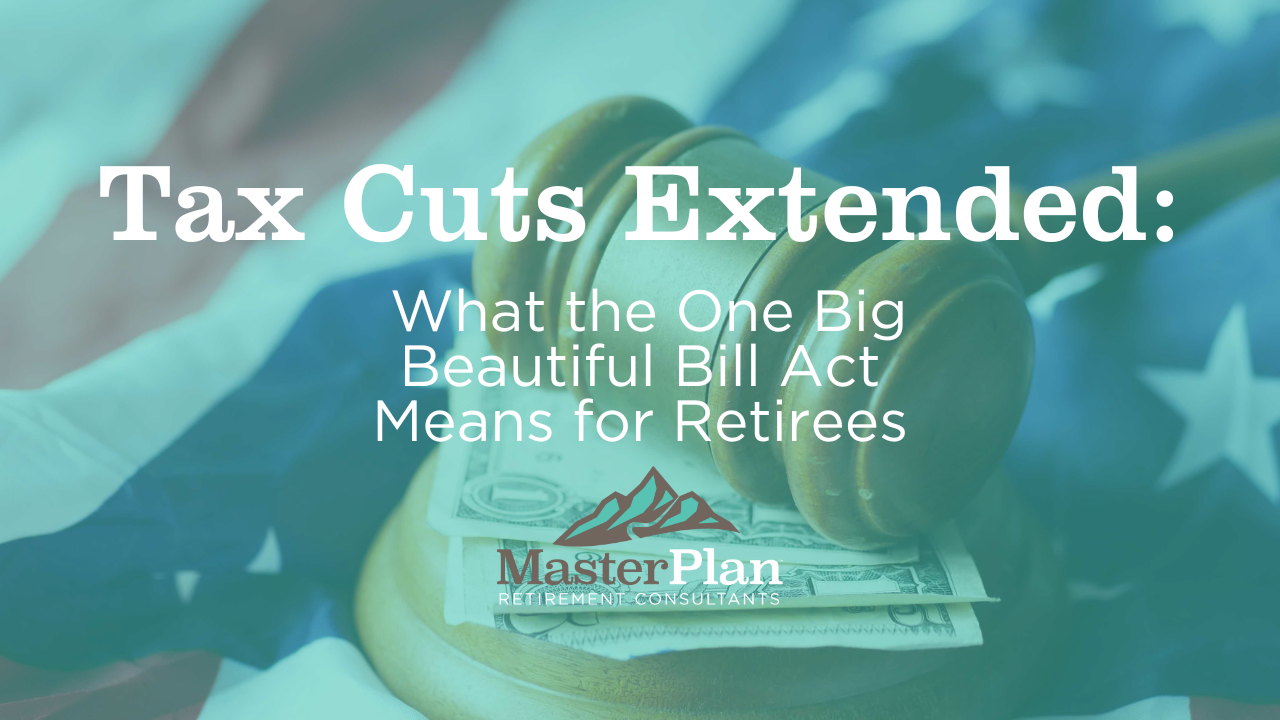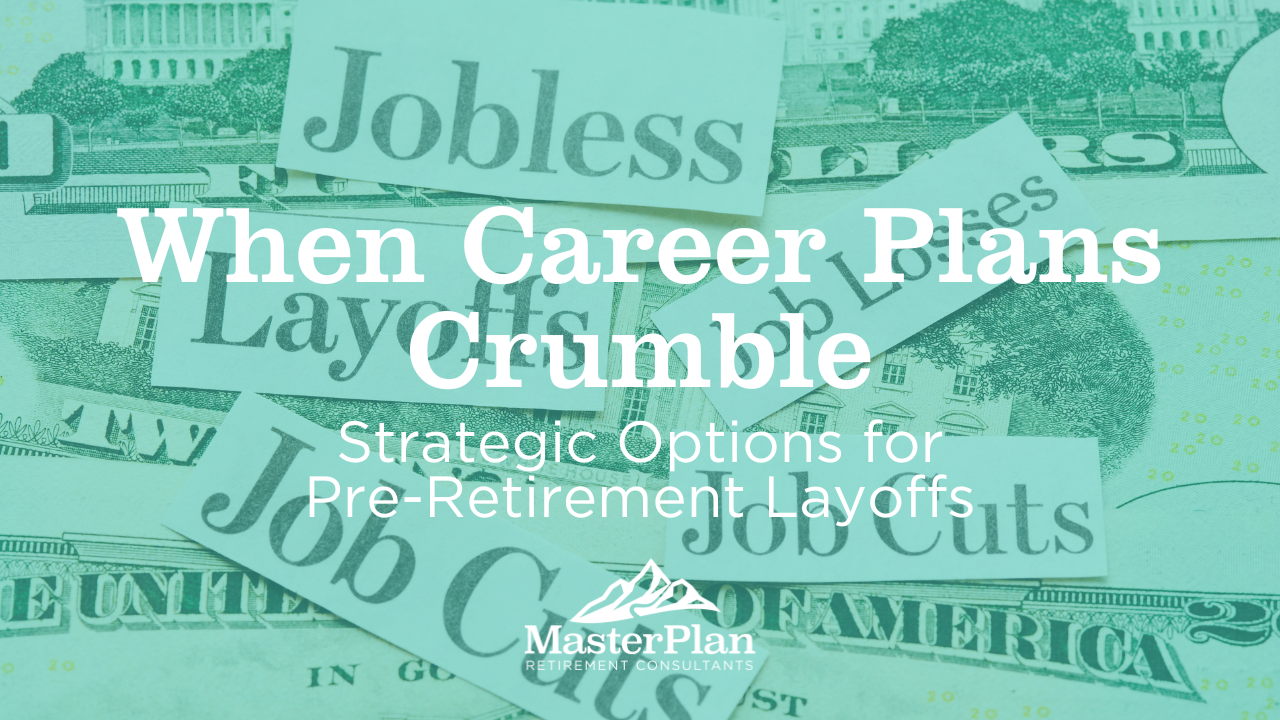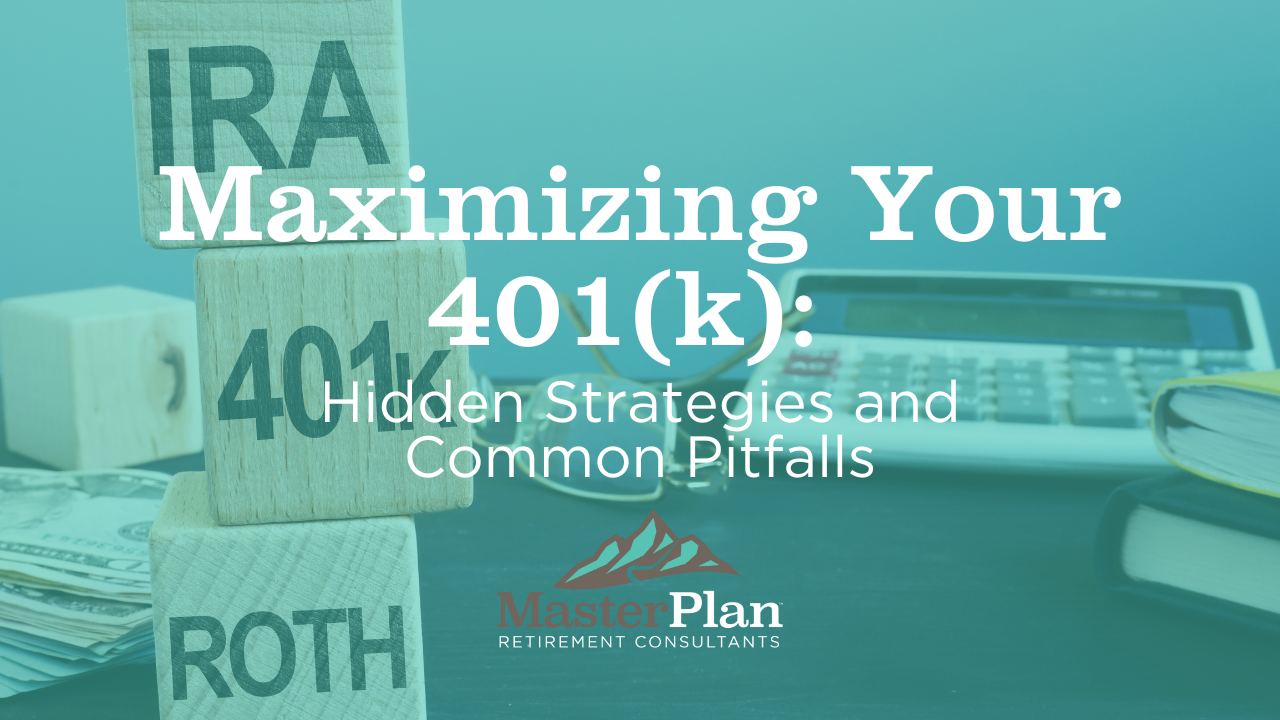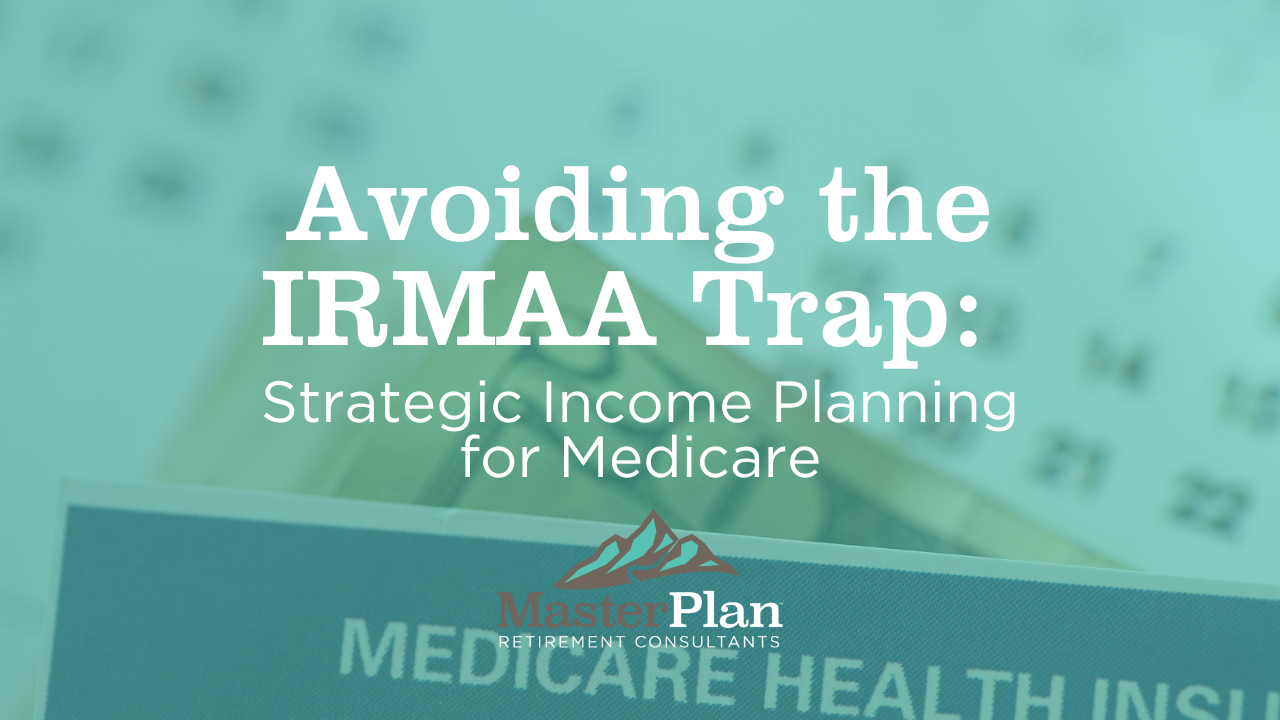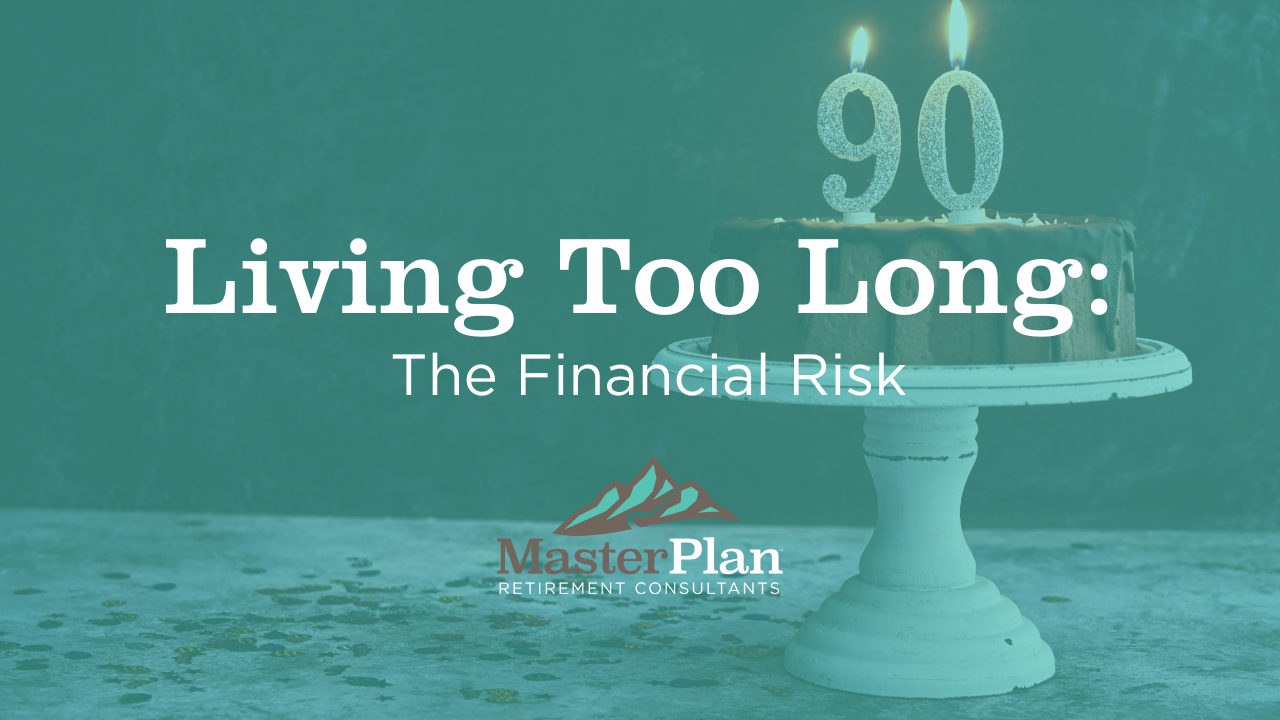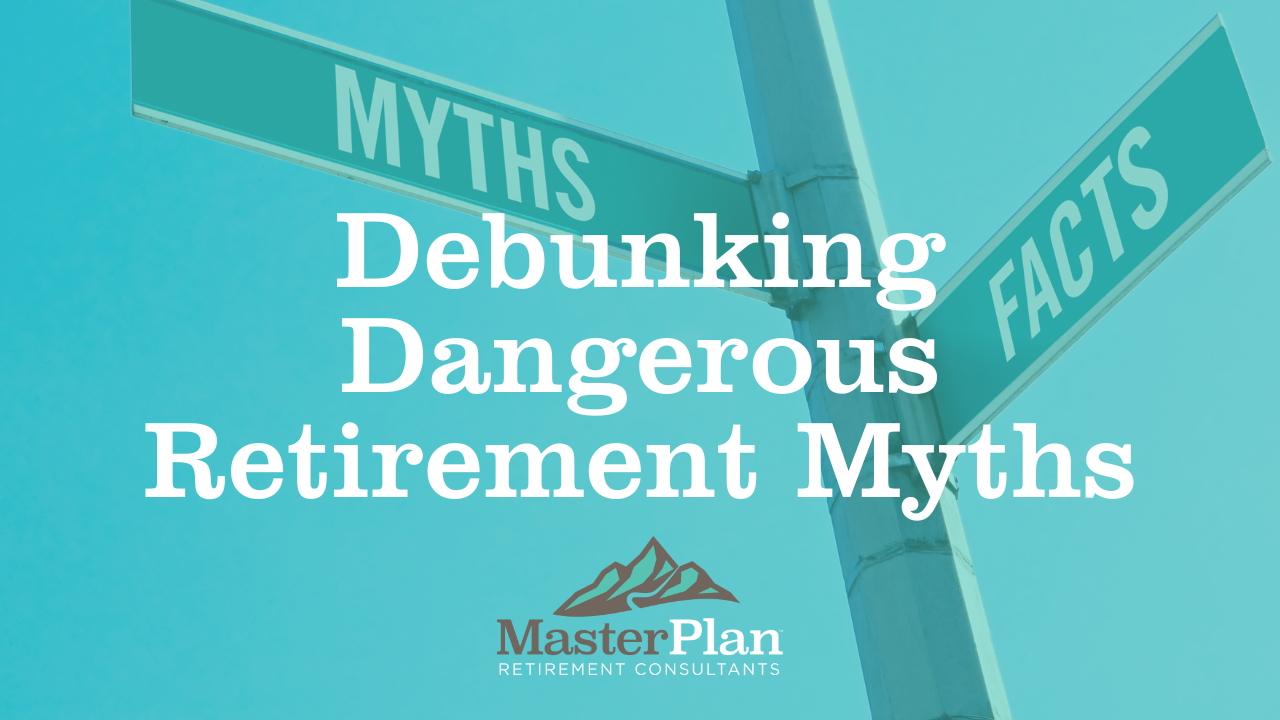Beyond the Check: Reimagining Retirement When Social Security Isn't Enough
On this episode of Retirement Roadmap, Evan and Mark discuss how Social Security has reached a milestone with the average check surpassing $2,000 monthly for the first time in June 2025, but this achievement highlights serious concerns about retirement security in America.
Evan Fricks:
Are you ready for Social Security history to be made? Hey folks, thanks for joining us. Welcome back to Retirement Roadmap with Master Plan Retirement Consultants. My name is Evan and with me, as always, retirement Planner Mark Fricks. The average Social Security check for retired workers has indeed surpassed $2,000 for the first time in June 2025. The milestone is a significant event in the history of the program, as it marks the highest average monthly benefit ever. The average check for June 2025 is expected to be over $2,000, based on the statistical snapshot issued by the Social Security Administration. That's a new milestone.
Mark Fricks:
It is, that's, I guess, a natural occurrence. I mean between cost of living adjustments, people paying more in, because when you make more money you pay more in. So it's going to push that number up year after year, that's right, that's right.
Evan Fricks:
So it's harder to judge what the lowest number is going to be with all the deductions how much people have paid in and spousal benefits, everything else. However, in June 2025, the maximum payment will be $5,108 per month for those claiming at age 70.
Mark Fricks:
I was going to ask what age? So 70, just over five grand, that's not a bad paycheck 60 grand a year, you know. But you don't have to wait for it. You don't have to wait for it and that's the question we are always asked. That's the discussion we always have with our clients and prospects is when should I take social security, right? So it's always the bigger check if you wait longer but you have fewer years to get it. But $5,000 a month. If you have a couple and if the spouse is getting anywhere near that, you may be looking at six figures for that.
Evan Fricks:
That's right.
So Social Security is the largest federal government program and one of the most successful. Truly, it provides income from millions of retirees, dependents, survivors and disabled workers. However, it's not without concern. Not only are we making history with a bump in the average monthly benefit, we've got a lot on the table with Social Security these days, the first being the Social Security dollar simply isn't what it once was. It's losing the race to inflation.
Mark Fricks:
The formula for the cost of living adjustment which we used to teach in class. It was like an extra 15 minutes to the class and I was just like people are glazing over. It is a complicated formula. It's designed to not keep up with inflation. You know and it's great, by the way you know, several years ago there was no cost of living adjustment. So once you got what you got, you got what you got from now on. So at least we have some adjustment. But pretty much like any pension, they almost always lag behind. So there ends up being what we call an income gap somewhere down the road. If you don't have one now, you're probably going to have one later because it is not keeping up with inflation. And this again it's the formula. It's the consumer price index that they use. It doesn't really count everything in inflation, but it's designed that way and they're thinking about tweaking it even further down so it won't keep up even as much.
Evan Fricks:
Yeah, so Social Security, first of all, was never meant to replace an entire paycheck. In fact, somewhere around 40% of a replacement on average is what it was supposed to do. In your retirement, once you walk away from work, with the extinction or process of elimination of pensions, that erases another guaranteed paycheck that was meant to work in accordance with Social Security. Now, the majority of our workers in America are reliant on 401ks, which are not a guaranteed amount. In fact, you don't know what it's going to be when you retire and you also don't own it all either, because of taxes, right.
Mark Fricks:
Think of it as a three-legged stool. Okay, you've got leg one is Social Security, leg two were pensions and leg three was your own personal savings. So back in 1979, when the ERISA laws were passed, the 401ks came out. Companies began replacing pensions with 401ks, and so one of those legs have become very wobbly or non-existent the pension leg. So now the leg that is left, but besides social security, is that 401k or your savings or whatever it may be. And, yes, that can do well over many years if you stick with it, if you don't borrow too much from it, if you don't spend it when you change jobs, all that kind of good stuff. But it's still, like you said, it does not guarantee a paycheck. It doesn't guarantee a paycheck replacement. There are ways, through planning, to better ensure that I mean that's a good way to say it that payment coming in, but it's, you know, the responsibility is now on the worker to make sure that happens.
Evan Fricks:
So I did mention Social Security was never meant to replace an entire paycheck. Again, we said around 40% or so. Social Security is the foundation of retirement income for many of our older Americans. Nearly 90% of people over 65 receive benefits and for 40% of them that accounts for more than half of their income. More than half. For about one in seven. It provides over 90 percent of what they live on, according to the social security administration.
Mark Fricks:
Yeah, and that's not going to get any better.
It's not again between the fact that it's not keeping up with inflation um, inflation being a little bit worse over the last few years. Um, again, so many folks you know every study I've read people are just not putting money away and so they're retiring with very little nest egg, especially if you're self-employed. It's even harder If you work for a corporation and they have this nice incentive to match. It becomes much easier. You don't see the money coming out of your paycheck, right, but self-employed or small companies tend to be a little bit less aggressive on something like that. You really have to be intentional and that's why, when we work with small business owners, that's one of the first things we bring up when are you saving your money? And I realize that many times. Hey, the value of my business is part of my retirement. I get it, you know, and I think that's great. But again, it would be nice to have another leg as well, and I think that's great, but again, it'd be nice to have another leg as well.
Evan Fricks:
Yeah, consider that last fact. For about one in seven, social Security provides about 90% of what they live on. So we already know many retirees are living on the edge. The median benefit, while it's great news if we're hitting average around $2,000 per month, it's simply not enough to cover the basic expenses in many parts of the country. And also consider that one in seven is providing 90%. What are the odds, actually, I should have looked into it, what are the odds that they've even achieved their full benefit at full retirement age?
Mark Fricks:
Exactly, and there's so many different factors that come into play and we're beginning to see more and more of parents living in the basement of their children, of you know, some lower income apartments coming along. I mean, you start looking at these senior living apartments. They're expensive, you know, buying houses now are expensive, and so we're seeing some very creative ways. Maybe we have three or four seniors getting together and renting a house together and being roommates, which actually might be kind of good because you share common interests, so but also being able to split those bills a good bit. So you had to become creative, and I don't, I don't know what the answer is. I mean, again, social security was never meant to provide everything in retirement. And if you're 60, 65, 70, I'm not going to say it's too late, but you certainly have lost a lot of years in saving, and so what's the solution? And so that's when you start getting creative.
I think we had a show, an episode about a month ago, talking about some ideas about retirement and how to make the most of it and things like that. So it is an issue, and now we've got social security beginning. The trust fund is beginning to disappear, which is going to put it more in jeopardy, may cut benefits a little bit. They're not going away. We've had a show all about how social security is not going away, but it could be a little bit smaller benefit for many folks coming up. So there's a lot of issues going on there and I wish I had a lot of good solutions. I've got a lot of good ideas, but the problem is getting it through these stubborn heads in Congress where they each want something of their own and they are not willing to give up something.
Evan Fricks:
Yeah, absolutely, and I would like our listeners and our viewers to consider this. Consider your personal budget now, whether you're in retirement or working towards retirement, consider your personal budget. Could you survive on $2,000 a month? Could you survive on $4,000 if that was just supplemental, or $5,000 a month? Could you survive on four thousand if that was just supplemental, or five thousand dollars a month? Could you survive on that with a lagging increase in cost of living?
It was not keeping up with inflation over the over 10 years or more. That's the median average of two thousand. We see immediately that there is a need for planning beyond Social Security.
Mark Fricks:
Absolutely. And again, the sooner you start. And again, if you're listening, I don't care if you're 60, 65, 70. We have one couple that are in there. She's in her mid-60s, he's approaching 70. We've just put a turbo plan in place. They're getting their debt paid down, they're putting away every penny they can. They're saying, hey, we're gonna sacrifice for the next five years so that when we're in our 70s and you know may not can work anyway, right, whether it be part-time or at all. They didn't, they didn't keep putting it off and say, well, it's too late for us, it's not too late. I mean, there's all little things we can do to to just optimize, to put a little bit more power behind certain accounts or certain methods and strategies and things like that. So you know, if, if there's one key point to take away from today, whether you're 45 or 65, start now.
Evan Fricks:
Yeah, with everything going on in social security and us discussing how tight so many American pocketbooks are right now, I want to bring something else, and I don't mean this to be gloom and doom, but concerning the elderly, the elder poverty in the U.S. So, here's kind of a sobering fact. The U.S. is already the highest among G7 countries, which is Canada, France, Germany, Italy, Japan and the United Kingdom. We're already the highest among those countries as far as our elderly poverty. We have the highest population of elders in poverty.
Older women are especially vulnerable because they tend to earn less. They tend to live longer. They tend to have fewer retirement savings. Social Security is often their only source of income. Without it, elder poverty in the US would be much worse. So consider the potential cuts on the line for Social Security and those people who are already are most vulnerable in our society and what that could mean, and then add in Medicaid and Medicare cuts to that as well, and then what kind of a bigger issue do you have on your hands? This information is also according to Kathleen Romig and research at the Center for Budget Priorities.
Mark Fricks:
Well, and it's such a hot potato politically and we're not taking any side of the fence here. I'm a big believer in not having huge government. I think the power should be in the people's hands. But these are the countries you mentioned have more safety nets too, and so where's the balance? I mean, I've mentioned a couple of times about healthcare.
I know as a small business what we pay, and it's just astronomical. It doubled in the last year. And so whether you're getting your health insurance at work and you're having to pay money toward it, whether you're having to go on your own, whatever your situation is, even under Medicare, your Medicare Part B is up at I think it's $185 per person this year. So a couple's paying $370 a month just for Part B. That doesn't include your Part D, which is drugs, your supplement, or whether you go to an Advantage plan or whatever. There's a lot of out-of-pocket.
So that's the other thing that me; folks that are retired and own nothing but social security. Once they pay that and buy food and a place to stay, it's almost like there's nothing left. And so what do you do if you have health issues? What do you do? Do you just put off going to the doctor. I've had people tell me before that they get a prescription and it's so expensive they skip every other day because they just can't afford a full month's supply, or split them in half, exactly, exactly. And so again, we're not here to talk politics. For sure I don't profess to be a Republican or a Democrat, I'm a capitalist.
Evan Fricks:
Well, I actually love that. That's really important to say. This is not so much a political conversation, because many of our past administrations, guys, this solvency of social security has been a conversation for decades.
Mark Fricks:
They've been kicking it down the road forever.
Evan Fricks:
The potato's getting hotter at this point because we are approaching 2033 or whatever the current estimate is.
Mark Fricks:
When I first started teaching Social Security classes, I was warning people. Then that was 18 and 20 years ago.
Evan Fricks:
It's foolish not to look the situation in the face at this point, without some real consideration of, okay, what happens if?
Mark Fricks:
And I think we've lost the ability in our government to negotiate. I was a big fan of Ronald Reagan. He didn't get everything he wanted. He gave up. If you go back to history, he'd give up this, which you know was more of a democratic thing to give up to get something that was more along his beliefs, and vice versa. They were all statesmen and stateswomen that were willing to do what was best for their country. So this is not political. This is where we as a country we've become so divisive and probably we need to leave this subject now.
But but you know, let's pull that back around to retirement and Social Security and surviving, and so I don't have the answer Again. I've got some great ideas, but we can't kick it down the road anymore, right? So, uh, by the way, um, a little slight change of topic here let's do mention the website. Okay, because there are solutions on the website, there are tools, there are resources to help give you guidance. They're not all the answers. I don't believe that you can go to any website and have it answer everything, whether it be medical or anything else. You need professional help either. You know whether it answer everything, whether it be medical or anything else you need professional help, whether it's financial, medical, a CPA, for taxes or whatever it may be. But our website, masterplanretire.com, has some great tools. We've got many, many episodes like this on it that you can access through podcasts, through YouTube or just the recording or whatever it may be. We've got a checklist, whether it be a survivor checklist, whether it be a retirement checklist, a federal checklist If you're a federal worker.
A lot of turmoil there. What are these people doing? I'm having two or three meetings a day just with federal workers that are trying to make critical decisions. So masterplanretire.com, that's also a place. You can push this little button. It says schedule a meeting. So why would you want to schedule a meeting? This is complimentary. This allows you to chat with us, to share your concerns. Maybe we've brought up some concerns for you today. Maybe we've said some things that have triggered some worries. Don't just stifle those. Approach them, meet them head on, meet with us, have a chat, talk about the good, the bad and the ugly, and then let us run some reports for you to see really where you are at. Maybe that's not a worry that you thought was, but maybe something else is a worry that you hadn't considered MasterPlanRetirecom. All you have to do is call 770-980-9262.
Evan Fricks:
You know I'm going to have to remember that in my daily conversations if the conversation is getting a little bit too close to being political. I'll just mention the website. That's a pretty good move.
Mark Fricks:
Moving on and there's nothing political on the website, by the way, and I don't think there's anything political here except we're saying we need a solution and we need some people to come together and come up with those solutions and understand that it's going to take both sides coming together. This is nobody's fault. This is a whole lot of parties and a whole lot of positions over the last 20, 30 years that should have been solving this a long time ago.
Evan Fricks:
Well, we do have a bipartisan page on our website, and that's the federal employee page.
Mark Fricks:
That's true, that's true, that's true.
Evan Fricks:
However political, that would be. All right. So the yet unknown. Let's talk a little bit on social security solvency.
Mark Fricks:
So again we I think we've talked about this in a couple of shows, or at least one episode, but people misunderstand what's going on with social security. Okay, Social security is funded three ways. The first way is by folks that work that pay into the FICA tax. If you're working for someone, you pay in is it six and a half, I think six and three quarters, something like that. The employer pays in the same percentage for a total of 12 plus percent. If you're self-employed, you pay in the whole 12 plus percent. Part of that goes to Medicare, Part A Part of that goes to a few other areas. Part of that goes to medicare. Part a part of that goes to a few other areas. Part of that goes to social security. That's funding way one. Funding way two are folks that are on social security. Uh, part of the tax they pay on their social security goes back into social security, so they're kind of paying their own way as they go. Is that that fair or not? I'm not here to say that, but that's leg two. Leg three is what we call the trust fund. That's a fancy word, for it's not really a fancy word, is it? The trust fund is basically a savings account. Yeah, I won't do that. So it's a savings account that has accumulated over the years. When there were more people working than there are now, there were like 16 people working for every retiree. Now it's like two and a half to three, and so there's not enough funding going in from the other two sources, so they're having to take money out of savings. The trust fund, which is mean, means that the trust fund has been dwindling for the last 30 years plus. Okay, so they're estimating the trust fund will be empty by 2032, 2033, somewhere in that time range. Okay, so that doesn't mean social security is going broke. It still has the other two legs, two other funding sources, but it means 21% of the funding will be gone. So, theoretically, if nothing is done, your check in the mid-2030s could drop by 21%. So it's not going away, it's not going under. It could be a cut in benefits. Now, again, we've talked about this. There are six, seven different things on the table being discussed. Some are raising taxes, Some are lowering benefits, some are changing benefits, changing inflation, raising the retirement age, all of this kind of stuff. So it's on the table. Okay, Now what's the difference? What's going to end up? Who knows right, but I hope something ends up Again.
I want to be able, when I'm 75, 85, and 90, to still be getting a check and know what's coming in. Folks that are 35 and 40 would be even more concerned. We've actually had some folks. When we do our planning they say, just leave Social Security out of my numbers, let's just pretend it's not there anymore. But you know, they're blessed to be able to do that. If it works, they are blessed. And then it's just gravy Absolutely. And they've worked hard to make that happen many times, so that, and so it's kind of fun to do that. But I do tell them I don't think it's going. It is the biggest program we have, you know. So I don't know how they could ever get rid of that. And think of the people that would be on the street if they did away with Social Security the disabled folks, the elderly, the semi-elderly, I mean so many people. Now you've got a much, much larger problem. So again, I'm very confident. But the sooner they do it, the sooner they're going to not have to bite such a big bullet.
Evan Fricks:
And at the time of this recording there are no dramatic cuts being proposed. But as it currently stands, doing nothing is doing something bad, because it's a problem that's got to be solved. There's discussion about possibly raising the retirement age. For retirement age, people are living longer. I'm sure people don't want to wait that much longer, that much more time, to receive a check, but at the same time people are living longer. Our lifespans are increasing. Possible cuts to Social Security taxation but again that's going to have to get paid from somewhere. Possibly more taxation, raising FICA incrementally over time. There's a lot of options on the table, but right now the inaction is the most concerning part, because if nothing happens then it's just going to drop. 21%-ish now is the average.
Mark Fricks:
And I will say this if they do raise the retirement age. So when it first came out the retirement age, full retirement age was 65. The average life expectancy was 62. So it was kind of like, well, hopefully you die before we have to give you any money, right? But now that we're, our life expectancies are in the upper seventies to mid eighties, depending on lifestyle and male, female, things like that then. And we've only raised the retirement age to 67.
So I see that going to 70, but I don't see it affecting people like over the age of 45 or 50. They will phase that in. So if you're retirement planning now and you're 52, I really don't think it would affect you. But the problem is this that's not going to really affect the money of social security for 20 years. If you say everybody under 50, we're going to affect, but if you're over 50, that's 25, 27, 30 years away. So what's it going to do for today's problem, today's situation? Nothing. So that's a concern with that, not that they should or shouldn't raise it, but it's not a solution that's going to help us over the next 10, 12, 15 years.
Evan Fricks:
Yeah, as retirement planners, income is often not always, but often the first hurdle we have to tackle when creating a plan for a client. So, with social security as a currently guaranteed income stream, with all the questions on the table, I ask our listeners and our viewers what would happen if your retirement plan, what would happen to your retirement plan if social security was suddenly removed from the equation, or even significantly reduced?
Mark Fricks:
Again. That's what we got to mention a minute ago. Take the responsibility, and we have clients that do that. We have prospects, we have kids of clients that come in and see us and you know, step one is them coming in to see us. So many of our clients say I really want my son, my daughter, they're in their 30s and in their 40s. I want them to come see. You Just can't get them in here and I know you're busy. I mean, gosh, at that age, kids running around, you know, college approaching, I get it OK, working your tails off, but if you can just take some time and just go ahead and say where am I at, what should I be doing to get where I want to be? And, by the way, let's aim for not even worrying about social security, and that would be a great way to start. So the younger you are, the better, the quicker. But yeah, it's a small percentage of people that have the time to do that or take that responsibility to do that.
Evan Fricks:
And I know it's been a little bit of a heavier episode topically. But topically or per topic- topically is a cream, isn't it? But here's the good news, Social Security is not a retirement plan, A 401k, an IRA, a Roth. Those are not retirement plans. Social Security is but one of a dozen or more areas of retirement that must be addressed, and not only addressed, but they all must work in accordance with each other.
Mark Fricks:
You know, I've got to mention these reports we run because it's amazing. Every time I look at them we'll show a perfect world report and they may not ever run out of money, or maybe they run out of money in their nineties or whatever, which we can fix that. But then you apply one stress test. Let's just say taxes go up by 15%, which I think they will All of a sudden they're running out of money in their 70s. You add a little bit higher inflation, they're running out of money. So there's these dangers that we really have to pay attention to and we got to work on all of them. So that's why we stress all of them as well.
So I hope you take advantage of that complimentary consultation. Push that button at masterplanretire.com. Uh, give us a call 770-980-9262. Again, today's show might've been a little bit heavier but we'll lighten it up next week. But in the meantime, until we see each other again, plan well and prosper.
This was Retirement Roadmap Radio with Mark Fricks of MasterPlan Retirement Consultants. To schedule a complimentary consultation, go to masterplanretire.com or call 770-980-9262.
All matters discussed during this show are for informational purposes only. Each individual situation may vary and the opinions expressed here may not apply to everyone. Materials presented are believed to be from reliable sources and no representations can be made as to its accuracy. All ideas and information should be discussed in detail with one of our qualified representatives prior to implementation. Advisory services offered by MasterPlan Retirement Consultants a Registered Investment Advisor in the state of Georgia, Mark Fricks and MasterPlan Retirement Consultants are not affiliated with or endorsed by the Social Security Administration or any other government agency.
